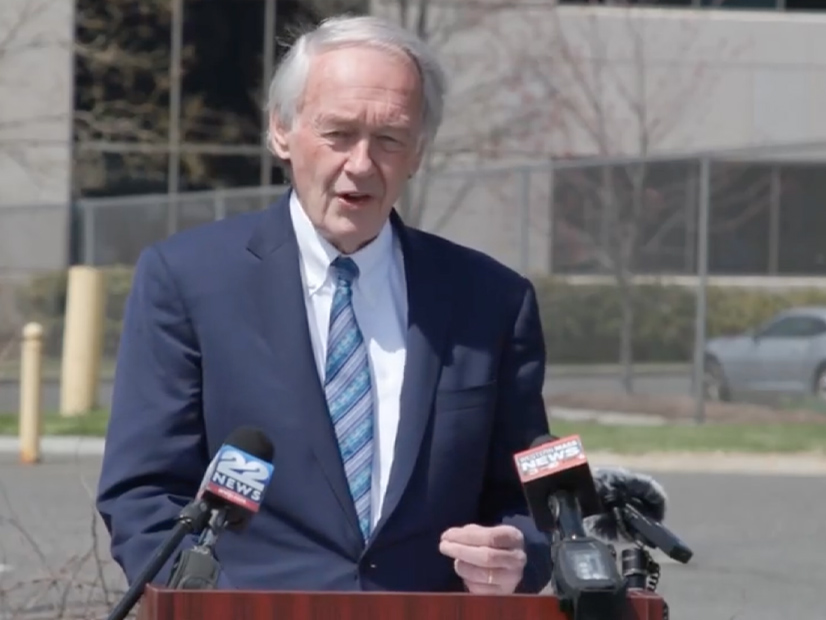Several big voices in Massachusetts and D.C. politics are turning up the heat on ISO-NE as FERC considers the grid operator’s proposal to delay elimination of its contentious minimum offer price rule (MOPR) by two years.
In a speech outside ISO-NE headquarters last week, Sen. Ed Markey lambasted the organization as secretive, part of an “oil and gas conspiracy,” and standing in the way of the transition to clean energy.
“Instead of giving us the green light for our clean energy revolution, ISO New England is proposing to send us on a detour,” Markey said. “By proposing to delay the elimination of a rule that puts fossil fuel generation ahead of cleaner, cheaper alternatives, ISO New England is risking reliability and cost savings for residents across Massachusetts.”
Known for his affinity for wordplay and developing new acronyms, the senator said the MOPR should be called “Minimizing Our Potential for Renewables,” and that ISO-NE should be called the “dependent” system operator because “it’s dependent on gas and oil.”
“They have been in the past, they are today and their rules say they want to be in the future as well,” Markey said.
Markey’s speech also elicited support from Department of Energy official Jigar Shah.
“Time to find solutions instead of holding up clean energy projects waiting for more studies,” tweeted Shah, director of the DOE Loan Programs Office.
The two-year “transition” to eliminating the MOPR from ISO-NE’s capacity market, now in front of FERC for a decision, has received a high level of scrutiny from environmental advocates, elected officials and the renewables industry who have questioned ISO-NE’s claims about reliability worries stemming from an influx of renewables and possible corresponding retirement of merchant generators. (See ISO-NE Sends MOPR Filing to FERC, Teeing up Big Decision)
In an email to RTO Insider, ISO-NE spokesperson Matt Kakley defended the process that produced the proposal.
“Our robust, federally-approved stakeholder process includes the ISO, the energy industry, representatives from the New England states and advocacy groups. ISO New England’s proposals are fully examined and discussed before undergoing review by our federal regulator prior to implementation,” Kakley said.
Markey’s claims of conspiracy, Kakley added, are “so outlandish they do not warrant a response.”
“In addition, we are independent of the resources competing in the wholesale markets and do not favor any resource type over another. In fact, ISO New England employees work every day to ensure that all energy resources can compete in the market, can interconnect safely to the regional power grid and can operate reliably,” he said.
A Senatorial Plea to FERC
Markey also wrote a letter, along with Sens. Elizabeth Warren (D-Mass.) and Bernie Sanders (I-Vt.) calling on FERC to reject the filing and force ISO-NE to immediately remove the MOPR.
“At the very moment when New England should be fully embracing the transition to renewables and the related socioeconomic opportunities, this decision to undermine state actions and renewable energy deployment is a terrible and ill-timed mistake,” the senators wrote.
They specifically called on federal regulators to use their authorities under Sections 205 and 206 of the Federal Power Act to “require immediate reform” of the MOPR.
“In doing so, FERC will signal that renewable energy should be allowed to fully and freely compete in wholesale markets,” they wrote. “This will ultimately lead to lower prices for household customers and facilitate our overdue and necessary transition to a decarbonized electricity grid.”
Experts have said that FERC could respond to the filing in several possible ways, including accepting it, rejecting it outright or sending it back with a finding that the status quo is unjust and unreasonable and an explicit order to immediately terminate the rule.



